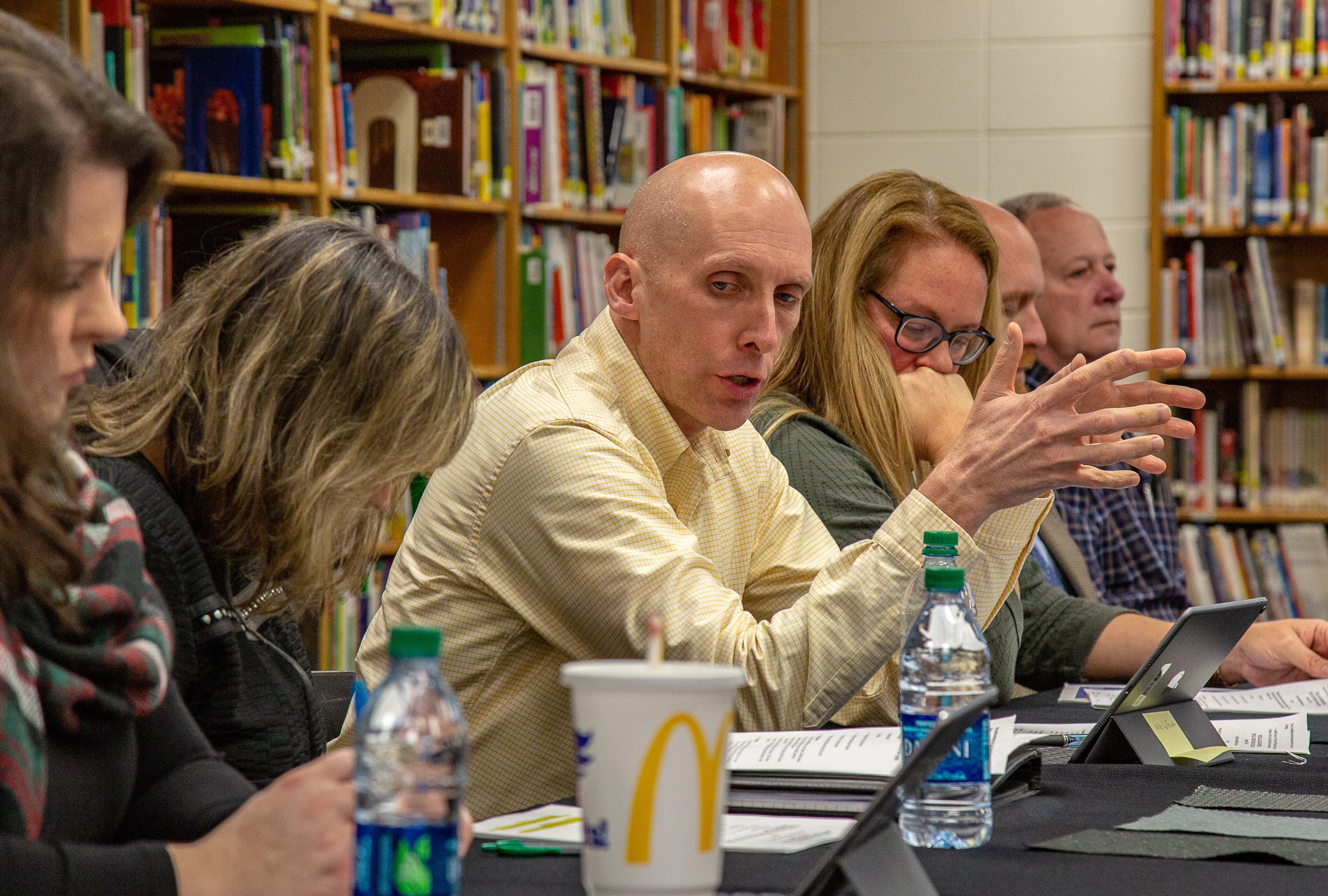Boyle Schools could subject most students to random drug tests
Published 8:04 pm Friday, January 11, 2019

- Ben Kleppinger/ben.kleppinger@amnews.com Boyle County Superintendent Mike LaFavers says a new policy instituting random drug tests for students could be brought to the Board of Education for approval by March.
Boyle County students could be subjected to random drug screens next year if they drive to school or participate in extracurricular activities.
The Boyle County Board of Education heard a committee recommendation at its meeting Thursday that it proceed with planning to require random drug tests. The board would still need to approve a final plan — something it likely wouldn’t vote on until March.
District Counselor Pam Tamme headed up the 10-person Random Drug Testing Committee that looked into the issue for the board.
“The committee believes if random drug testing were to move forward … the actual random drug testing should be only one part of a multi-prong approach” to addressing drug use among Boyle County students, Tamme said.
It is actually illegal for public school districts to randomly drug test all their students, Tamme explained.
“Since it’s a law to come to public school, you can’t force people to randomly drug test,” she said. “However, you can increase your pool of who you test because of anything that students do that is by choice … beyond coming to school.”
Examples of voluntary behaviors that would allow the school to subject students to drug testing include driving to school instead of taking the bus; participating in athletics or band; and even being a member of a club such as FFA or the Fellowship of Christian Athletes, Tamme said.
If the school district decided to randomly drug test all of its athletes and students who drive to school, that would cover about 56 percent — 484 out of 864 — of students. If the school district randomly drug tested all students who participate in any clubs as well, the pool would expand to about 76 percent of students — 655 out of 864, according to a presentation developed by the committee.
Parents could also voluntarily opt their children to be in the pool for drug-testing, Tamme said.
The committee asked all 173 school districts in Kentucky whether they randomly drug tested their students. Ninety-one of those districts answered the question; and 85 of those said yes, according to the committee’s presentation.
Tamme said the committee asked the 85 districts who said they did drug test students to fill out a more in-depth survey, and 24 of those districts did.
The districts reported their annual costs for drug testing were between $2,500 and $15,000. half the districts reported they test only high-school students and half said they test middle- and high-school students. “Almost half of the 24 districts do random drug testing monthly,” according to the committee’s presentation.
Twelve of the districts reported they wound up with three or fewer positive drug tests every year.
“We would want a very robust and comprehensive response to a positive drug test,” Tamme said.
In addition to random drug tests, the committee recommended “other areas of development needed,” including “parent education,” “student prevention lessons” and “a tiered comprehensive response to positive drug tests that includes both logical consequences and meaningful interventions.”
Students who test positive could have their extracurricular activities restricted or taken away; they could also receive counseling or treatment services, Tamme said.
The committee also surveyed the district’s head coaches about drug testing. Eight of 19 coaches who responded said they think the district should implement random drug testing.
If random drug testing was implemented, 15 of 19 coaches who responded said they think it should be implemented for the biggest number of students possible — “all school extra-curricular activities, athletes and drivers.”
Board Chair Jennifer Newby said she is “highly in favor” of drug-testing students.
“I think it’s a wonderful measure to prevent the tragedy of our increasing drug use in our community,” board member Laura Guerrant said.
Superintendent Mike LaFavers said a formal policy could be drafted for the board to consider in March. A second reading could be held in April, and then the district could begin looking for a vendor to do the testing and educating parents and students about the new policy in advance of the 2019-20 school year, when it would be in force.
SO YOU KNOW
Danville Independent School District does no drug testing of students, said Tiffany Seppenfield, communications coordinator for the Danville district.






